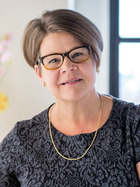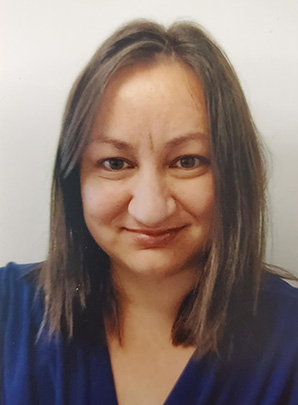Resource Navigation
Learn more about how CancerCare Resource Navigation can help you address barriers to care.
Support Groups
Connect with others in our free support groups led by oncology social workers.
Live
- Living With Cancer: A Journal Writing Support Group (New York and New Jersey, Video)
- Living With Cancer: General Patient Support Group (New Jersey, Video)
Connect Education Workshops
Listen in by telephone or online as leading experts in oncology provide up-to-date information about cancer-related issues in one-hour workshops. Podcasts are also available.
Podcasts
Coping
- HER2-Positive Metastatic Breast Cancer: What’s New in Treatment and Quality-of-Life, Jun 6, 2025
- Coping with the Stresses of Caregiving When Your Loved One Has Multiple Myeloma, Apr 3, 2025
- Coping with Cancer, Mar 12, 2025
- The Role of Nutrition, Exercise & Meditation in Coping with Myeloproliferative Neoplasms, Feb 7, 2025
- Non-Small Cell Lung Cancer for Caregivers: Practical Tips for Coping, Jan 14, 2025
- Challenges Young Adults with Cancer Face: Coping Tips, Dec 6, 2024
- For Caregivers: Practical Tips to Cope with a Loved One’s Bladder Cancer, Nov 20, 2024
- For Caregivers: Coping with the Stresses of Caregiving When Your Loved One Has Triple Negative Breast Cancer, Nov 13, 2024
- For Caregivers: Coping with Your Loved One’s Metastatic Prostate Cancer, Nov 12, 2024
- Metastatic Triple Negative Breast Cancer: Strategies to Cope, Oct 23, 2024
- Highlights from the 2024 American Society of Clinical Oncology (ASCO) Annual Meeting: The Art and Science of Cancer Care from Comfort to Cure, Sep 24, 2024
- Caregiving for Your Loved One with Cancer, Sep 23, 2024
- Triple Negative Breast Cancer: Coping with the Fear of Recurrence, Sep 18, 2024
- Non-Small Cell Lung Cancer: For Caregivers, Jun 25, 2024
- For Caregivers: Practical Tips for Coping with Your Loved One’s Chronic Lymphocytic Leukemia (CLL), Jun 13, 2024
- HER2-Positive Metastatic Breast Cancer: What’s New in Treatment and Quality of Life, Apr 24, 2024
- The Role of Nutrition, Exercise and Meditation in Coping with Myeloproliferative Neoplasms (MPNs), Apr 4, 2024
- Coping with the Stresses of Caregiving When Your Loved One Has Multiple Myeloma, Mar 21, 2024
- Young Adult Survivorship: Fertility, Sexuality and Intimacy, Feb 9, 2024
- For Caregivers: Practical Tips to Cope with a Loved One’s Bladder Cancer, Jan 31, 2024
- Challenges Young Adults with Cancer Face: Coping Tips, Dec 15, 2023
- Metastatic Triple Negative Breast Cancer: Strategies to Cope, Oct 25, 2023
- Cancer and The Workplace: Understanding Your Legal Protections, Mar 25, 2020
- Joys and Challenges of Pets in Your Home When You Have Cancer, Apr 8, 2019
Publications
Read or order our free Connect booklets and fact sheets offering easy-to-read information about the latest cancer treatments, managing side effects and coping with cancer.
For Any Cancer Diagnosis
- Advice for Caregivers: Handling Burnout
- Anxiety and Cancer
- Ask CancerCare: Questions and Answers on Coping With Cancer
- Building Connections as a Veteran: Resources and Support
- Cancer and Gender Diversity
- Caring for Your Pets When You Have Cancer
- Consejería para Lidiar Mejor con un diagnóstico de cáncer (Counseling to Better Cope With a Cancer Diagnosis)
- Coping With Cancer and Natural Disasters
- Coping With Cancer as a Gay or Bisexual Man
- Coping With Cancer as a Veteran
- Coping With Cancer as a Young Adult
- Coping With Cancer as a Young Adult
- Coping With Cancer as an LGBTQ+ Person
- Coping With Cancer During the Holidays
- Coping With Cancer When You’re On Your Own: How to Get the Support You Need
- Coping With Cancer: Tools to Help You Live
- Coping With Sadness and Depression After Cancer
- Counseling to Better Cope With a Cancer Diagnosis
- Counseling to Better Cope With Post-Treatment Survivorship
- If You've Just Been Diagnosed
- Mobile Applications (Apps) and Cancer
- Older Adults Coping With Cancer
- Relaxation Techniques and Mindfulness Practices: Coping With Cancer
- Shared Decision Making for Patients
- The Value of Oncology Social Workers
- What Is Resource Navigation?
- Why Join a Support Group?
For Colorectal Cancer
For Lung Cancer
For Pancreatic Cancer
For Lymphoma
For Peripheral T-Cell Lymphoma
Financial Assistance
Limited assistance from CancerCare is available to help with cancer-related costs.
Ask CancerCare
Every month, featured experts answer your questions about coping with cancer including specific answers to questions asked by caregivers.
For Any Cancer Diagnosis
- Q.
I've been diagnosed with advanced cancer. I have five children and feel they don’t want me around for Christmas, because it makes them sad, and they don’t have the time for both me and their own families. I can’t be alone. I don’t know what to do to or what to say to them.
A.I am very sorry to hear that you are facing these challenges this holiday season. While you feel that your children are not wanting to have you with them, you don’t say whether you have spoken with them about your concerns. It may be that they are unsure of how you are feeling or what your expectations might be concerning Christmas. If you are in need of any special assistance or equipment to facilitate spending time with them, they may not feel prepared to manage those needs. The key may be to open up a discussion with them to talk about your preferences for being with family that day and to address the practical considerations that would make it possible.
As difficult as it is to cope with cancer during the holidays, it is also possible to be joyful. For many, the idea that you can feel both sad and joyful is an unusual concept. While your family may experience feelings of sadness associated with the many issues related to your cancer, there can also be joyfulness when spending time together with those who mean so much and creating memories of a special day. The challenge can be in maintaining an awareness of the pleasures that are available in the midst of a very difficult time.
Many people face challenges like yours during the holiday season. It might be helpful for you to speak with a CancerCare social worker about your unique circumstances, so please call us at 1-800-813-HOPE (4673). We’ve also compiled suggestions that might be helpful in our fact sheet, Coping With Cancer During the Holidays.
- Q.
Three weeks before the holidays, my father was diagnosed with advanced cancer. Hospice care has started but I find it isn’t enough and other family members who live in town really don’t offer help. Some days seem too overwhelming - how do I focus on everyday activities?
A.Depending on your particular family and faith traditions, there can be a lot of expectations at this time of year, many of them focused around finding joy in the season. When illness or grief interrupts those expectations, it can be difficult to manage.
Be kind to yourself during this time, and consider what is truly important to you now. That can require you to adjust your expectations about everything from shopping to housecleaning. Make a list of those things that you truly enjoy and decide which of those traditions you would like to retain. Give yourself permission to “pass“ on those traditions that generate stress or involve a good amount of effort
This may also be a time that you can ask others to provide additional support. This can include a conversation with the hospice social worker concerning what other services may be available. You might use the services of a hospice volunteer or have the ability to engage additional home care supports on your own.
While it would be ideal for family and friends to volunteer their help, it may be necessary to ask them. Consider whether there are specific tasks that you can ask others to perform which can provide you a break from the day-to-day demands of care giving. Is there someone who can stay for a few hours, offer to go to the market, or bring your father to a scheduled appointment? Many times family and friends would like to help but are at a loss as to how to be helpful without being disruptive to routines.
- Q.
I was diagnosed with cancer a few months ago and I don't feel much like celebrating the holidays. I'm worried I'll be a downer for my family and I'm not sure how to act.
A.It makes sense that you don’t feel celebratory–you may be coping with fatigue or pain, and feel uncertain about the future. While your self-expectation may be that you should be smiling and happy at this time of year, the truth is no one can ever be sure how he or she might feel on any given day, and cancer, especially, doesn’t go on holiday. But try not to let your fears of being a “downer” keep you from staying close to the important people in your life. Although people close to you may not know how to approach the subject of cancer, that doesn’t mean they won’t be understanding, or don’t want to help. If you are open to talking with them, you may find that friends and family are more compassionate than you anticipate. While not everyone may be equally helpful, raising the subject of cancer may bring many of your family members closer. Here are some practical tips that could be helpful to you:
Listen to your body. Gauge your physical limits to give yourself time to rest and to manage your energy.
Manage expectations. Remember that you can only do the best you can–if you are not feeling well during a holiday, remind yourself that it is just one day of the year, and that the people you want to be with will care about you just as much even if you don’t feel like celebrating. Give yourself permission to be less than “joyful” all the time.
Communicate. Talk with friends and family members a few days before you see them. Let them know how you are feeling and that you would like their understanding. Since it is likely that not everyone you know will respond the same way, spend a moment to consider how much you want to share and how much a given person will be able to hear.
Plan ahead. Don’t hesitate to ask for what you need. Most often family and friends want to help, but they may not know how, or what to say. They may be relieved if you reach out to them to let them know what will make you feel comfortable. Create a list of tasks or that you can ask others to do for you that you need help with.
Keep in mind what is most important to you. Holiday traditions are important, but that doesn’t mean altering them is bad–if you aren’t able to do exactly what you have done in the past, there is nothing wrong with starting new traditions. And while gifts are nice, it is the sentiment behind them that is most memorable. Simply being with people who care about you is a gift, both to them and to yourself.
For additional tips, please read CancerCare’s fact sheet, Coping with Cancer During the Holidays.
- Q.
As caregiver for my husband, I have no interest in the holidays. I know this is a disappointment to our adult children, and our young grandchildren don't understand why I just don't care about shopping, etc. What can I say to them to tell them I love them but I am just so sad, other than just that?
A.Caregiving is a difficult and an often unappreciated part of living with a person with cancer. It is physically and emotionally draining, if not exhausting, and others may not be aware of the difficulties you are facing. While the holiday season may mean time off from work for some, you may feel that there is little or no time off from your caregiving duties.
Tell your children and grandchildren that you love them as much as ever, and that you would like to do everything that you have done in the past, but that you may not be able to right now. Everyone will feel more comfortable knowing what you are thinking, and will feel reassured that while the way you need to spend your time has changed, your feelings for your family haven’t.
Explain to them what you are not up to doing, and ask them if they could help you with some of the things that you would normally do alone. Giving your adult children (and your grandchildren, to the extent that it is appropriate) new tasks and responsibilities would likely make them feel good about being able to help, and create even stronger bonds among you. You can reassure your grandchildren that although you don’t feel up to doing the things that you have normally done with them in the past, that this doesn’t mean that you won’t do those things again in the future.
If possible, see if there are people close to you who can look after your loved one while you find some rest or diversion, so that you may enjoy holiday activities with others, or just spend some quiet time alone or with a close friend.
For more general tips on how to support yourself as a caregiver, read our fact sheet “Caring Advice for Caregivers: How Can You Help Yourself?”
- Q.
My boyfriend was diagnosed with cancer and is receiving treatment. However, since treatment began, he keeps out of my way as much as he can. He finds excuses not to meet me, refuses to take my calls and doesn't even reply to my short messages. Now I am worried about his cancer and feel so sad about his attitude. Can you give me some advice?
A.This is a common concern of family and friends. There are several factors that can lead to this sudden change in relationships and personality. For patients, it often starts when they hear the words, “you have cancer.” Most of us know someone who has had cancer so hearing the words “you have cancer” brings up fear and uncertainty. A newly diagnosed patient begins to recall watching others go through it and before they have a lot of information they start to worry that the same experience is going to happen to them; especially if those they knew had difficulties.
Because a cancer diagnosis requires undergoing a lot of tests, managing an often complicated health care system, and coping with increasing financial concerns, many patients become overwhelmed and shut down emotionally to focus on the practical issues they need to address immediately. During the very time that family and friends want to help most, the patient might seem distant and pull away.
Once he or she starts treatment additional changes can happen. Some might be permanent, raising concerns about the patient’s ability to be the same partner and provider they once were. At some point though, the emotions finally come to the surface and people begin to look at what they have been going through. That is often the time they reach out to a counselor, clergy or open up with loved ones.
During all of this, family and friends are anxious themselves and try harder to help the patient, which might just push him or her further away. This adds to the confusion during a very stressful time and can escalate the distance. Since cancer also affects those who care about the patient, this is instead a good time to step back; let them know you are there but also get support for yourself. Literature and support groups for caregivers go a long way toward normalizing your experience, providing education on cancer and its side effects, and can offer new insights.
Time and time again I am reminded that cancer is a process of learning, changing, confronting and reintegrating. It’s a process for both patients and caregivers. Sometimes it feels like a roller coaster and other times like an endless journey. Relaxation exercises can help with the stress. And sometimes stepping back a bit can eventually bring caregivers and patients closer together.
Here are resources I think can be helpful to you:
For Breast Cancer
- Q.
I've just started treatment for breast cancer and I need to talk about my fears and concerns with the people who are closest to me. But my family just says, "Oh, you'll be fine" and to stay positive. How I can I get them to listen?
A.It’s often frustrating to hear our loved ones tell us that everything will be okay and to just think positively. It can feel dismissive and uncaring. However, our friends and family often do not intend to sound unsupportive, but may find it difficult to hear that you are struggling because they care about you so much. Or they might rush to comfort you, thinking that it’s helpful to tell you that things will be fine.
It’s absolutely okay to see things from a more optimistic perspective, or to have hope that things will get better, but trying to force yourself to think positively all the time adds more pressure and stress and can make you feel worse. It’s preferable to let yourself feel the negative emotions, as well as embracing the positive ones. If you try to shut off your fears and worries, it can make you hold onto them longer.
Try telling your friends and family that you appreciate their concern and realize that they’re just trying to be helpful, but that it is in fact more supportive if they just lend you an ear and a moment. Let them know that you are not asking them to solve your problems, that you just need to express your feelings. Sometimes you’ll have bad days and need to vent.
Ask them if they can shoulder some of your burden, just by listening, knowing that you would do the same for them. If they cannot, consider talking to an outside professional instead, like a CancerCare social worker. Sometimes you need a more objective person to create a safe space for all your feelings, positive and negative.
Our Connect Education Workshop Helping Cancer Patients and Their Families Cope with the Stresses of Caregiving might be helpful for you and your loved ones to listen to.
Remember, not all families can respond in ways that will be helpful. A support group might be useful to you as a way to connect with others who understand how you are feeling. We offer groups in-person, over the telephone, or online. You can also contact us at 800-813-HOPE (4673) and speak with an oncology social worker.
For Cervical Cancer
- Q.
I'd like to connect with other women who have cervical cancer. I feel like they'll understand me best. Can you tell me where I should look?
A.Support groups are a wonderful opportunity to speak with other women diagnosed with cervical cancer. Joining a group can provide a safe environment to share thoughts, ideas and feelings with others in a similar circumstance, and members in a support group often feel less isolated during their cancer experience. Support groups may be available face-to-face, over the telephone, or online.
CancerCare offers a free, private online support group for individuals in treatment for gynecologic cancer. This message-board style group is moderated by an oncology social worker, and is available 24/7 during the group cycle.
For individuals you have completed treatment for any diagnosis, you can consider our post-treatment online support group.
If you have a social worker at your hospital or treatment center, they are often very knowledgeable about any face-to-face groups in your local area. Often, treatment centers run their own support groups that may either be focused on a specific diagnosis or may be more mixed in composition. You can also consider “peer matching”, a service in which you would be connected to another individual who has undergone similar treatment for cervical cancer so that you can have one-on-one phone conversations. Two organizations providing this service include Cancer Hope Network and Imerman Angels.
For Lung Cancer
- Q.
My 68-year-old husband was diagnosed with lung cancer, had radiation and chemo, and is currently in remission. Since ending his treatment, his personality has changed drastically and he directs his anger towards me. Can chemo affect a person mentally?
A.Chemotherapy can affect a person’s mood, as can other medications such as steroids. It is important that you and your husband inform his doctor of changes in his mood to rule out any medical causes. The change in his personality may also be a sign that he is still struggling emotionally with his diagnosis and treatment. Cancer can be overwhelming and bring up many feelings from anxiety to anger to sadness. As your husband’s primary caregiver, those feelings may be directed towards you since you are the one he is closest to and trusts. If you haven’t done so already, letting your husband know how his feelings and behavior affect you is important. Seeking couple’s counseling is also a good idea if you are having difficulties communicating with each other.
The end of treatment often can lead to many strong and conflicting feelings. When a person is first diagnosed with cancer, he/she is often focused on learning about the diagnosis and getting through treatment. This can delay the emotional impact of cancer and feelings may come up once treatment ends, as there is more time to think about what has happened. For more information on coping post-treatment read, After Treatment Ends: Tools for the Adult Cancer Survivor.
Specialized Programs
CancerCare offers specialized programs to address specific populations and concerns.
Coping Circle Workshops
Virtual educational and supportive workshops led by oncology social workers and qualified co-facilitators. These workshops cover numerous topics and are offered in English and Spanish.

 Answered by
Answered by  Answered by
Answered by  Answered by
Answered by  Answered by
Answered by  Answered by
Answered by  Answered by
Answered by